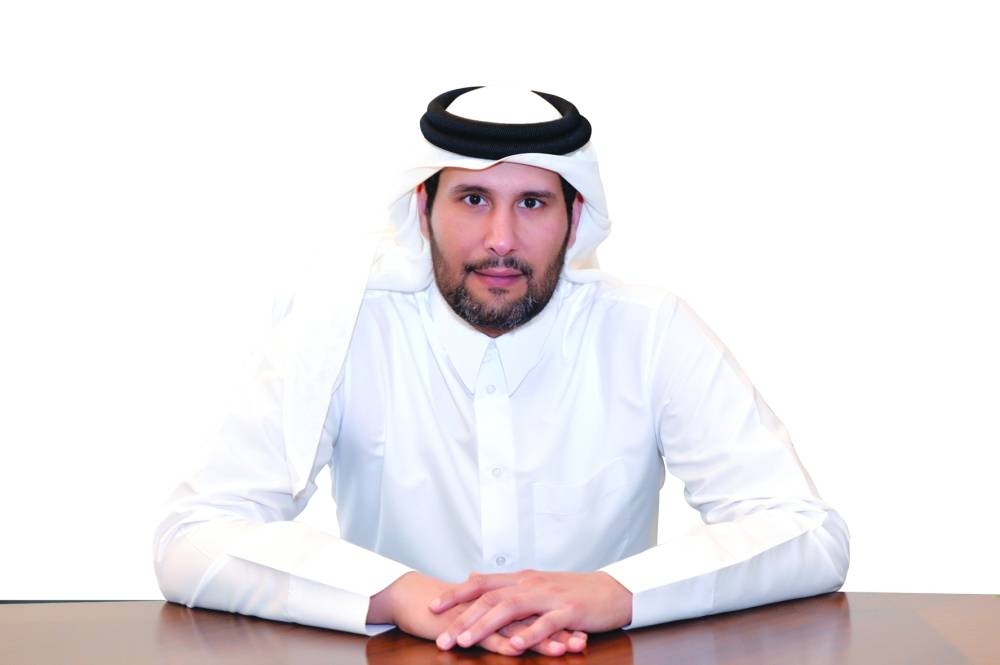Qatar Islamic Bank (QIB) posted a net profit of QR4.005bn in 2022, up 12.7% on QR3.55bn in 2021.
Basic earnings per share stood at QR1.62 in December 2022 compared to QR1.42 in the same period in 2021.
QIB's board of directors proposed a dividend distribution to shareholders of QR0.625 per share, i.e. 62.5% of the nominal share value, subject to approval of the Qatar Central Bank and QIB’s general assembly.
Total assets of the bank now stand at QR184bn with financing assets at QR119.3bn and investment securities at QR45.8bn in December 2022.
Customer deposits totalled QR122.4bn with financing to deposit ratio of 95.1% in December 2022 compared to the QCB’s maximum requirement of 100%, reflecting the bank’s “strong” liquidity position.
Total income in 2022 reached QR9bn, registering a growth of 10.3% compared to QR8.1bn in 2021.
Income from financing and investing activities registered a healthy growth of 11.5% to reach QR8bn last year compared to QR7.1bn in December 2021.
Income from financing activities grew by 8.4% to reach QR6.5bn last year compared to QR6bn in 2021.
Income from investing activities registered a strong growth 28.2% to reach QR1.5bn in 2022 compared to QR1.1bn in December 2021.
Also, net fee and commission income registered a growth of 11.6% to reach QR810mn in 2022 compared to QR726mn in December 2021, reflecting positively on the bank’s core operating and banking services activities.
The bank’s drive to improve the efficiency supported by strict cost management measures helped in bringing down the cost-to-income ratio from 18.1% in 2021 to 17.4% for 2022, which is the “lowest” in the Qatari banking sector.
QIB was able to manage the ratio of non-performing financing assets to total financing assets around 1.5%, lower than the 1.8% (in December 2021) and "one of the lowest" in the industry, reflecting the quality of the bank’s financing assets portfolio and its effective risk management framework.
The bank continued to create precautionary impairment charge on financing assets for QR1.2bn in December 2022, due to the long-term impact of the pandemic and continuing inflationary conditions on business segments and geographies.
QIB continues to pursue the conservative impairment policy maintaining a healthy 95.4% coverage ratio for non-performing financing assets (as of December 31, 2022).
QIB’s total shareholders’ equity reached QR23.3bn, an increase of 12.2% compared to QR20.7bn in December 2021. As of December 2022, the total capital adequacy of the bank under Basel III guidelines is 19.9%, well above the regulatory minimum requirements prescribed by Qatar Central Bank and Basel Committee.
"2022 was a historic year for the State of Qatar," said the board of directors commenting on the end-of-year financial results. “The FIFA World Cup Qatar 2022, the world's largest sporting event, provided an opportunity to introduce our culture and traditions to the rest of the world. We are extremely proud that we were able to commemorate this historic occasion with our customers, employees, and the larger community, as well as visitors from all over the world."
"QIB has marked yet another remarkable year despite the economic uncertainty across the globe. In 2022, QIB achieved several milestones, including the introduction of new, innovative products and services for individuals and businesses, as well as growth in its banking operations. QIB was able to maintain and strengthen its leadership in the Qatari banking sector, remaining the largest Islamic bank and the largest private bank in the country."
"The bank's performance in terms of growth, portfolio, and profitability is a result of the focused execution of our business strategy over the last few years.
“Our ongoing efforts to promote a cashless ecosystem and enable digital access to financial services have proven invaluable in achieving service excellence and allowing us to respond to our customers' needs in a timely and efficient manner."
The board of directors also emphasised the bank's significant progress toward sustainability, both in terms of maintaining a strong financial position and further integrating ESG into the bank's strategies and operations.
“Having the Qatar National Vision 2030 as a beacon of our journey and aligning with the United Nations (UN) Sustainable Development Goals (SDGs), QIB is progressing towards a broader and deeper integration of the ESG criteria across all layers of our organisation as per the bank’s long-term sustainability strategy.
"This year's financial results confirm the bank's strong foundation and reflect the firmness, resilience and stability of the Qatari banking sector and the national economy. Our sustainable and stable business model has been recognised by all international rating agencies, resulting in numerous recognitions and awards from the most credible international financial publications,” it said.
Business
QIB net profit jumps 12.7% to QR4bn in 2022
Bank's Board of Directors propose 62.5% cash dividend to shareholders

Sheikh Jassim bin Hamad bin Jassim bin Jaber al-Thani, QIB chairman
